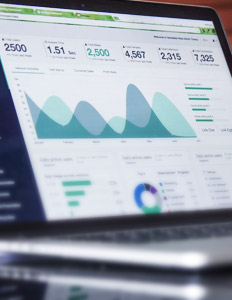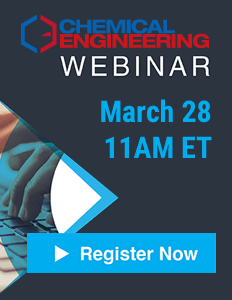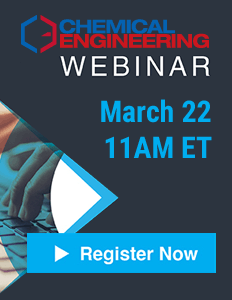Webinars
Utilizing Smart Devices to Electrify the Grid
FREE | August 22, 2023
REGISTERThe demand for electricity is increasing, and the grid is not always able to keep up. This is where smart solutions for heating, ventilation, and air conditioning—better known as HVAC—come in. Strategies designed to enable users to participate in demand response programs, facilitate load flexibility, and integrate hybrid and electrified HVAC systems, help reduce the strain on the grid. Smart devices enable a utility to work with its customers to ensure a reliable supply of electricity during periods of peak demand.
In this webinar, you’ll learn:
• Role of Smart devices
• Broader trend of electrification role
• Smart Vent Coolers
• Future of smart devices and the benefits of participating in demand response programs
• How to get involved in a program in your area

Accelerate to net zero: digital technologies for Carbon Capture, Utilization and Storage (CCUS)
FREE | August 8, 2023
REGISTERAs part of efforts to combat climate change, many countries, companies and other organizations have committed to net zero emissions targets. Achieving these targets will require fundamental changes in the energy & chemical process industry. With many of the transformative technologies required still in their infancy, there is a need for solutions that support a reduction in greenhouse gas emissions now. Carbon capture, utilization and storage (CCUS) can help reduce emissions from today’s fossil-based processes. Moreover, CCUS is particularly relevant for high-temperature chemical processes for which there are few alternatives.
By their very nature, CCUS facilities need to be tightly integrated into other process systems. This raises questions on how best to maximize efficiency of the overall system, what impact the CCUS process has on process dynamics and control, and how best to reduce capital and operating expenditure. Questions like these require a sufficiently accurate representation of the entire process, in order to accurately predict plant performance, and operate closer to true limitations.
In this webinar, we discuss how digital design techniques are used to map system interactions, predict process responses in highly transient scenarios, optimize equipment and system designs, and ultimately provide reassurance to all stakeholders in the CCUS chain to confidently navigate the road to decarbonization.

Sustainable Water For Blue And Green Hydrogen
FREE | July 25, 2023
REGISTERGreenhouse gas emission targets are driving the Energy Transition and sustainable performance to reduce carbon intensity. Decarbonization of hydrogen production is becoming a key global initiative. Around 71% of global hydrogen production in 2019 (70 million tonnes) was driven by refineries, ammonia, and methanol production, with the hydrogen being sourced primarily from natural gas. After the development of the UN Sustainable Goals in 2015 and more recently with the Inflation Reduction Act, Infrastructure Law, and America’s Water Infrastructure Act, the development of blue and green hydrogen projects are at the center of how the energy and chemicals industry is responding.
There are two main categories of hydrogen based on method of production: Blue and Green. Blue hydrogen production involves the coupling of conventional hydrogen production with carbon capture and storage. Natural gas is transformed with steam or/and oxygen (i.e., steam methane reforming or autothermal reforming). Green hydrogen involves coupling the electrolysis of water with renewable energy, making it a carbon neutral process. Both processes require large amounts of water. Water must be treated prior to chemical or electrochemical processing and also wastewater generated by the processes also need to be treated prior to discharge.
Effective water treatment for hydrogen production is essential because on the front end it must be the right quality and quantity otherwise the process will not be successful. Wastewater must meet effluent guidelines and requirements. To be truly successful the water treatment process must be completed in such a sustainable way that it reduces the demand for initial source water.

Digital Twins: The Accelerated Path to Autonomous Operations
FREE | June 22, 2023
REGISTERThe concept of digital twins has been around since 1960s, but the term was first introduced nearly a decade ago by NASA’s John Vickers. Until very recently, adoption of digital twins has been inconsistent, but acceptance looks to be accelerating with recent market shifts. Today’s users are seeing exponential benefits by deploying multiple digital twins across sites. The next wave of digitalization innovations, powered by digital twins and AI, is creating new levels of agility and flexibility, paving the way to autonomous operations.

Enable Industry 4.0 Initiatives: Accelerate Data-Driven Value Creation with AspenTech Inmation™
FREE | April 25, 2023
REGISTERThe chemical industry, like other capital-intensive industries, generates large amounts of data that never gets collected, contextualized and used to its full potential. Industrial data from a variety of sources and locations has the potential to help organizations meet energy efficiency goals, avoid raw materials/feedstock shortages, decrease downtime, increase profitability and improve ESG reporting. Join this live webinar to learn how chemical producers are using AspenTech Inmation to ingest, centralize and transform siloed, disparate data into actionable information.

Pump Up Profitability by Minimizing Rotating Equipment Downtime
FREE | April 4, 2023
REGISTERMechanical seals have been the dominant sealing technology for refineries and chemical plants for decades. But how much do you know about proper system design and how it eases maintenance? Since something as simple as strategically integrating bypass lines can help increase rotating equipment uptime, it is important to understand the basics of how seal support systems work so you can optimize their use in your facilities.
If you are tasked with keeping rotating equipment online and operating efficiently, and you are interested in learning more about mechanical seals and the systems that support their long-term operation, Swagelok’s upcoming free webinar is for you. Join us on April 4 at 11 a.m. ET as Matt Dixon, Application Commercialization Manager, discusses:
• The main functions of a mechanical seal support system
• How these systems help eliminate potential leak points and increase safety while lessening time spent auditing connections and making repairs
• Optimal system designs according to API 682, and how to select them

Optimizing Operations and Mitigating Risks in the Chemical Industry through Digital Transformation
FREE | March 28, 2023
REGISTERDespite the billions of dollars spent on sophisticated control and safety software, factors such as human error, manual processes, lack of process compliance, siloed systems, and poor procedures and training can contribute to unreliability and lead to costly industrial accidents.
So how can companies effectively mitigate industrial risk to provide a safer, more productive facility for their people, their business and the environment?
Join us as our panel of chemical industry leaders and operations experts discusses how Operations Risk Management (ORM) can help companies successfully address the chaos caused by costly human errors, disconnected, inadequate software systems and unreliable, paper-based processes and procedures.
Tune in to this informational webinar to learn how digitalizing your operations can transform your business by:
• Enhancing your safety-critical processes
• Improving high-risk operational procedures and work processes
• Visualizing your operations for clear, consistent process documentation and procedures
• Centralizing plant asset information
• Reducing human error and optimizing productivity using critical safety and production information for greater operator situation awareness

Get the Best of Your Data – Combining Integrity, Connectivity and Data Analytics
FREE | March 22, 2023
REGISTERIn our webinar, we show you how to get a handle on your data using Sartorius Lab Instruments and Data Analytics Software. Discover how data integrity and connectivity combined with robust data analytics can optimize your manufacturing processes, increase your yield, and help you bring quality cells and packs to the market faster.
- Data integrity and connectivity for lab instruments
- Connecting Cubis II lab balance to a LIMS system
- Advanced data analytics in battery production
- Multivariate data analysis
- Design of experiments

Integrated Digital Solutions: Key Steps Toward Greater Energy Efficiency
FREE | December 6, 2022
REGISTERWith dynamic market conditions, tight profit margins and stringent emission targets, process industries are facing a dual challenge of achieving ambitious sustainability goals while meeting growth targets. Companies must chart a course to rapidly overcome these challenges in a volatile market.
Join our experts as they share how innovative, integrated digital solutions enable you and your teams to:
- Gain critical insights to help improve asset performance and maximize productivity while minimizing environmental impacts
- Break down silos and create streamlined workflows for faster, smarter decisions across operations
- Develop adaptable digital pathways to help ensure continuity and progression in your sustainability journey
Discover how industrial AI-powered energy efficiency solutions reduce energy 2-10%, increase production 5-15% and drive over $1M/year in profit margins while accelerating GHG emission targets.
OT/ICS Cybersecurity Risk: You can’t protect what you can’t see
FREE | December 8, 2022
REGISTEROperational Technology/Industrial Control System (OT/ICS) Inventory encompasses endpoints, or components of an endpoint, that have a model number, serial number, or version number. This includes hardware, firmware and software running in the OT/ICS environment. The systems to be included in your OT/ICS inventory should include DCS, PLC, SIS, Vibration Monitoring, Fire and Gas Systems, Burner Management Systems, Advanced Process Control, Turbine Machinery Controller, Compressor Controls, Historians, Protective Relays, Smart Instrumentation, Operator Stations, Engineering Stations, Switches, Routers, Firewalls, etc.
In this webinar you’ll learn how to attain a comprehensive asset inventory that captures vital data from level 0 – level 3.5 of the Purdue Model to not only improve your cybersecurity posture but also your day-to-day operations.